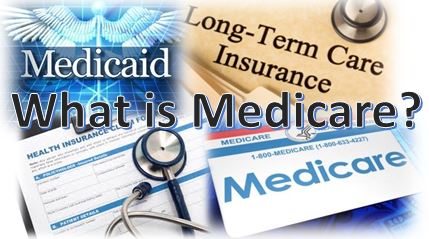In the recent Huffington Post piece, Shocking Things People Don’t Know About Medicare, our team members were amongst eldercare experts who offered their insight into common surprises about Medicare coverage.
Confusion abounds when it comes to healthcare coverage for seniors. We often get asked, “What is Medicare versus Medicaid and which one pays for what my Mom needs?” The terms are so similar and the range of programs and coverage so varied, that these questions can be hard to answer, especially if you’re new to dealing with healthcare as a retired person.
What is Medicare?
Medicare is a federal health insurance program for people over age 65 and certain disabled persons. You generally pay into Medicare through your payroll taxes, and become eligible no matter what your income/asset situation (i.e. not “means tested”).
The key parts of Medicare are: Medicare A (hospital coverage, short-term rehabilitation/skilled nursing, hospice and certain home health care), Medicare B (doctor’s visits and other outpatient services), and Medicare D (prescription drug coverage). Where’s Part C? What was once known as Medicare C is called Medicare Advantage today, and is really a private option, covering a range of services (i.e. an alternative way to receive Medicare coverage). Check out our Medicare Fact Sheet for a concise breakdown of key parts, dates and more.
What does Medicare pay for, and what’s not covered?
This is a general breakdown, with references to further details. We also welcome your inquiries for individualized assistance in navigating your coverage and other programs to help.
Part A: Hospital Insurance (generally $0 premium if you have enough eligible quarters of employment)
- Inpatient hospitalization (deductibles/co-pays and time limits apply)
- Inpatient Skilled Nursing/Rehabilitation, after a 3-day qualifying hospital stay (beware of observation days!). Up to 20 days at 100%, a possible additional 80 days with a co-pay.
- Certain home health services/therapies and durable medical equipment
Medicare DOES NOT pay for “custodial care” or “long term care“, i.e. most of the in-home and nursing facility services elders need to stay safe and healthy when dealing with chronic conditions, dementia and mobility issues.
Part B: Physician’s Services, Outpatient Services (premium and small deductible each year; the premium is higher for those with a certain level of income)
- Covers most doctor’s services and some additional outpatient services such as physical therapy. Many doctors and services will accept “Medicare assignment”, meaning they will take what Medicare provides as total payment.
- Medicare now covers a long list of preventative care screening and services.
Part D: Prescription Drugs
- You choose a private company to cover your prescription drug needs. Medicare provides a certain structure/minimum standards, but the benefits and costs vary. Medicare open enrollment is from October 15-December 7, during which you can choose a Part D plan (or switch to/from Medicare Advantage).
What is Medicaid?
Medicaid is a joint federal and state program covering some medical expenses for people with “limited means” (qualifying based on income/assets, i.e. means-tested). It is really a range of programs, with different eligibility criteria and coverage and varies greatly by state. Some people are “dual eligible”, receiving coverage through both Medicare and Medicaid which often helps to cover a broader range of services.
The Florida Medicaid programs that most often impact seniors are: the Institutional Care Program (ICP) i.e. nursing home coverage, Statewide Medicaid Managed Care Long-Term Care Program (SMMC-LTC), Program of All-Inclusive Care (PACE) and Medically Needy and other special help/waiver programs. PACE and SMMC are essentially home and community based programs, managed to cover a range of needs/services. Many of these Florida programs are what is known as “waiver” programs, i.e. Florida applies for a waiver from the federal government to use Medicaid money for special programs/innovations. It is important to note that this means there are typically an allotted number of slots/dollars (and therefore, often a waiting list).
For help navigating Medicare, Medicaid, your long term care insurance coverage and more, contact our advocacy team at 727-447-5845!







